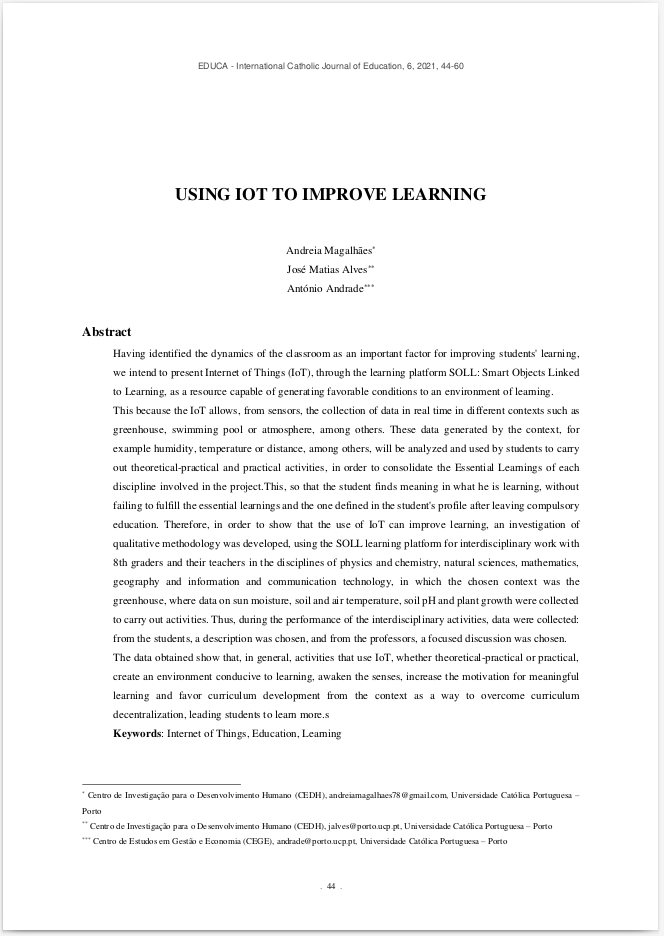Using IoT to improve learning
Main Article Content
Abstract
Having identified the dynamics of the classroom as an important factor for improving students' learning, we intend to present Internet of Things (IoT), through the learning platform SOLL: Smart Objects Linked to Learning, as a resource capable of generating favorable conditions to an environment of learning.
This because the IoT allows, from sensors, the collection of data in real time in different contexts such as greenhouse, swimming pool or atmosphere, among others. These data generated by the context, for example humidity, temperature or distance, among others, will be analyzed and used by students to carry out theoretical-practical and practical activities, in order to consolidate the Essential Learnings of each discipline involved in the project.This, so that the student finds meaning in what he is learning, without failing to fulfill the essential learnings and the one defined in the student's profile after leaving compulsory education. Therefore, in order to show that the use of IoT can improve learning, an investigation of qualitative methodology was developed, using the SOLL learning platform for interdisciplinary work with 8th graders and their teachers in the disciplines of physics and chemistry, natural sciences, mathematics, geography and information and communication technology, in which the chosen context was the greenhouse, where data on sun moisture, soil and air temperature, soil pH and plant growth were collected to carry out activities. Thus, during the performance of the interdisciplinary activities, data were collected: from the students, a description was chosen, and from the professors, a focused discussion was chosen.
The data obtained show that, in general, activities that use IoT, whether theoretical-practical or practical, create an environment conducive to learning, awaken the senses, increase the motivation for meaningful learning and favor curriculum development from the context as a way to overcome curriculum decentralization, leading students to learn more.

